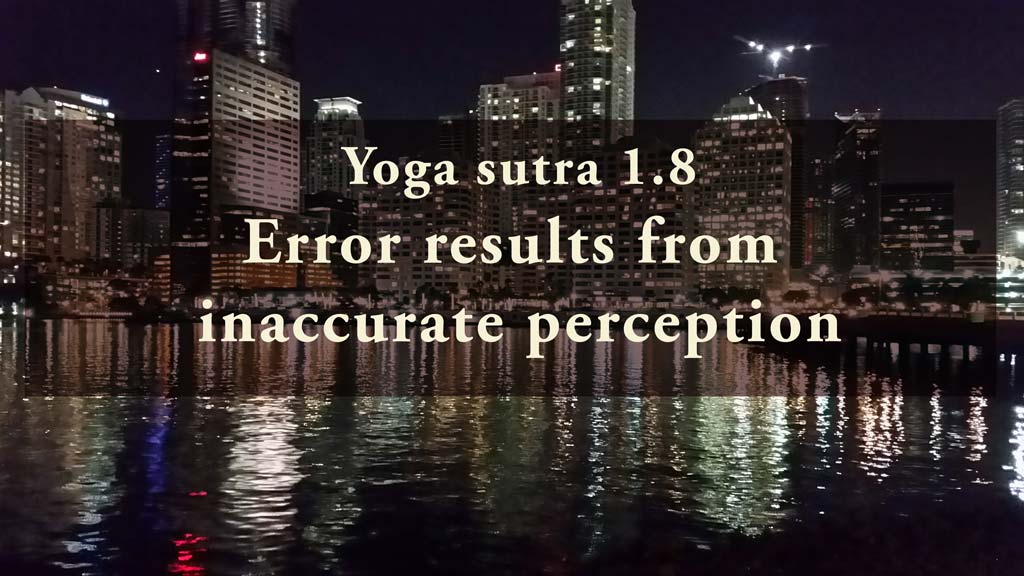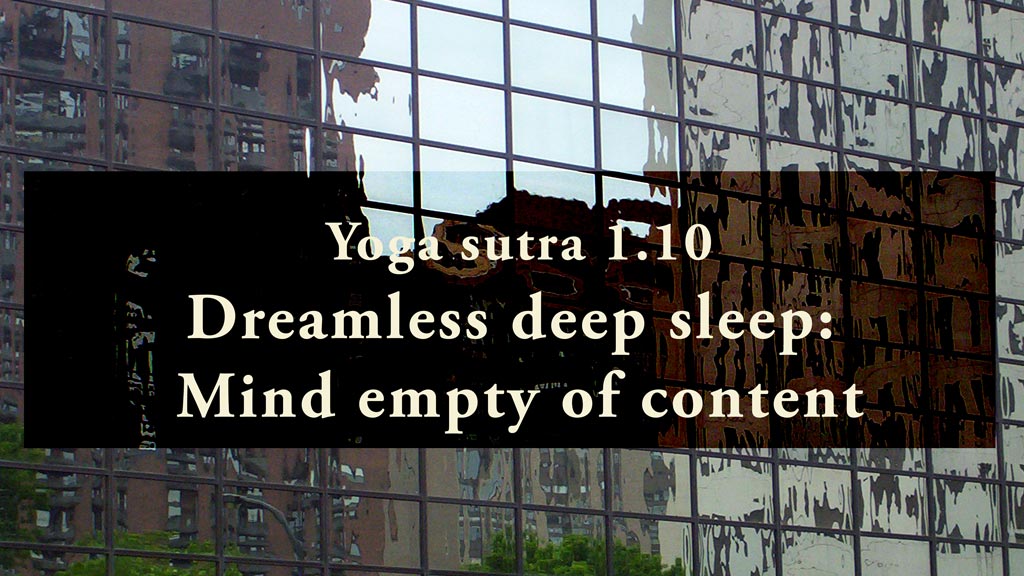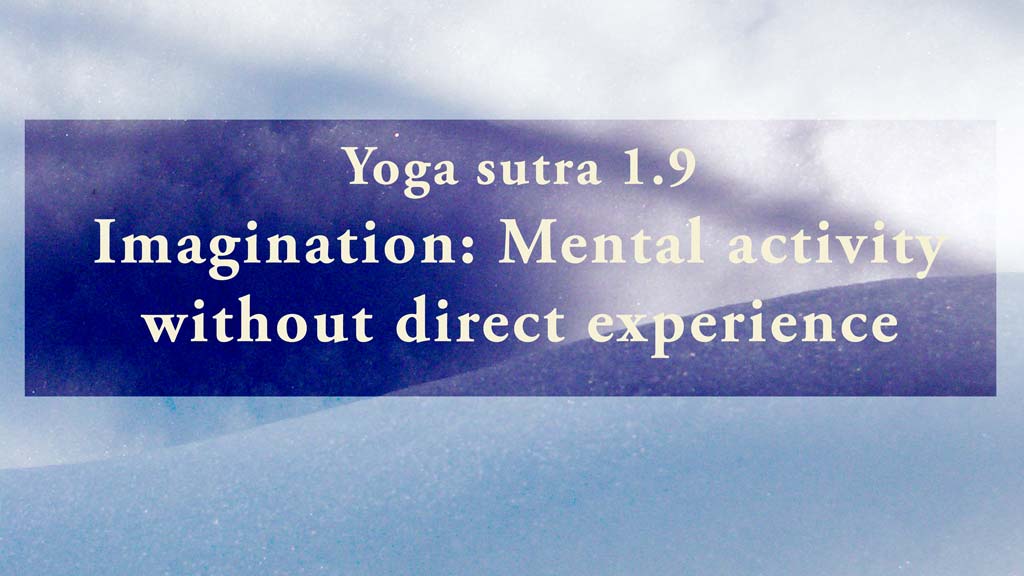
1.8 Error
April 19, 2019
1.10 Sleep
May 4, 2019
1.8 Error
April 19, 2019
1.10 Sleep
May 4, 20191.9 Imagination


1.9 Imagination (vikalpa) is the activity of the mind not based on direct experience.
After explaining knowledge and misunderstanding in the previous two sutras, this verse continues the systematic inquiry into the ways in which human awareness works by defining imagination (vikalpa). Imagination is anything that is created in the mind that is not based on direct experience. Imagination belongs to the realm of ideas. Your imagination plays a role in recreating the stories you tell yourself and others. Other people’s stories, as well as the stories you have heard many times through your upbringing, education and social institutions all feed into your imagination. It often happens that you have heard your parents tell a story about you when you were 2 or 3 years old, perhaps it was on a memorable trip or a funny event or comment you made. Many people may not be able to remember such a remote story, but when you have heard it so many times (and may have even seen pictures of the event), you may construct an image in your mind and count it as one of your memories, when it is in fact one of the things that you imagine. Imagination is one of the ways in which every person constantly arranges and edits her life story, what she has done, where she has been, with whys and hows. This is an ongoing process that gives you a sense of coherence, that you are a logical and sensible person making decisions based on good information and sound reasoning. However, this constant editing of your own life story may cause you to end up believing your own stories, even stories that are not the result of your lived experiences. It may also be the source of misunderstandings with other people when there is conflict between each person’s version of an event.
Notice how the things that you imagine exist only in your head. Consequently, these stories can often seem “ideal.” When we try to bring those ideas into being we will probably find friction between the world of thoughts and reality as it is actually happening. It is usually in this gap between what we think and how it actually happens where we find sources of agitation. This is an example of what Patanjali was saying in sutra 1.5, that our ways of being can be helpful or not helpful. For instance, you start thinking about a place that you would like to visit. You even read about the place, its history and why it is important to visit it. When you get to the place, what you encounter may not match accurately your ideas about it. Sometimes what you find is much more exciting or beautiful than what you had imagined. Other times, what you find does not measure up to your expectations. Notice how each option will probably trigger thoughts, emotions and attitudes that might distract you from being fully present right where you are.
In yoga, because we are interested in being with what is, and not what could have been or should have been, it is important to distinguish between your direct experience and mind activity that is not based on your own experiences, your imagination. You can make a point to observe closely the contents of your mind to differentiate what you know from what you imagine. You can also listen closely to the stories that you tell yourself in order to examine them for accuracy and relevance. Some of the questions that can guide you in this process include: What stories do I tell myself? What are the stories that I want to hear? Do I believe the stories I tell myself (and others)? Are my beliefs based on direct experience, or on my imagination? You may also explore the contents of your imagination to find out if what you imagine is conducive to greater integration or to fragmentation. Are you using your imagination to visualize a meaningful goal for your life? Or, on the contrary, are you using your imagination to remove yourself from attending to your life consciously? Is your imagination distracting you by adding unnecessary things you “need to worry about,” or by imagining what other people might be thinking? Does your imagination contribute to the quality of your participation in your life?
As usual, you can be curious about how it feels to chant this sutra. You can choose to chant the traditional version:
शब्दज्ञानानुपाती वस्तुशून्यो विकल्पः ॥९॥ śabdajñānānupātī vastuśūnyo vikalpaḥ
or you may try chanting each word individually
- śabda
- jñāna
- anupātī
- vastu
- śūnyaḥ
- vikalpaḥ
Unravel the thread is now available as a book!
If you find Simple-Yoga.org and Unravel the thread useful, consider supporting my labor with a donation, you may also donate using PayPal or Venmo. Thank you!
